Memorial Day ~ Rev Don LaVetter
A friend of mine, The Reverend Don LaVetter, gave the following Memorial Day address and graciously allowed me to post it here. (I have typed it in, so all typos are mine.)
************************************************************************************
I would like to ask all of you a question... What do you think the world would look like today, if it were not for the American soldier?
Memorial Day is the time for Americans to reconnect with their history and core values by honoring those who gave their lives for the ideals we cherish.
More than a million American service members died in the wars and conflicts this nation fought since the fist colonial soldiers took up arms in 1775 to fight for Independence. Each person who died during those conflicts was a loved one cherished by family and friends. Each was a loss to the community and the nation.
The observance of this day was born of compassion and empathy in 1863, As the Civil War raged, grieving mothers, wives, daughters, sisters, and other loved ones were cleaning confederate soldiers' graves in Columbus, Mississippi, placing flowers on them. They noticed nearby the union soldiers' graves, dusty, overgrown with weeds. Grieving for their own fallen soldiers, the confederate women understood that the dead union soldiers buried nearby were the cherished loved ones of families and communities far away. They cleared the tangled brush and mud from those graves as well as their own soldiers' graves and laid flowers on them too.
Soon the tradition of a "Decoration Day" for the graves f fallen soldiers spread. On May 5, 1866, when the Civil War was over, Henry Welles of Waterloo, New York, closed his drugstore and suggested that all other shops in town also close up for a day to honor all soldiers killed in the Civil War, union and confederate alike. It was a gesture of healing and reconciliation in a land ripped apart by conflict.
Sixteen years later, in 1882, the nation observed its first official Memorial Day, a day set aside to remember and honor the sacrifice of those who died in all our nation's wars.
For decades, Memorial Day was a day in our nation when stores closed and communities gathered together for a day of parades and other celebrations with a patriotic theme. memorial Day meant ceremonies at cemeteries around the country speeches honoring those who gave their lives, the laying of wreaths, the playing of Taps.
In some places, these ceremonies continue, as we see here. You present at this event remember the true meaning of Memorial Day. You come here to honor our fallen comrades by your presence. You understand that on Memorial Day we honor the ideals and values those soldiers stood for and died defending.
Sadly, many Americans have lost this connection with their history. All too many Americans today view military service as an abstraction, as images seen on television and in movies. For a growing percentage of the American people, memorial Day has come to mean simply a three-say weekend or a major shopping day. Families might still gather for picnics, but for many of them, the patriotic core - the spirit of remembrance - is absent.
Memorial Day, like the military itself, is largely cut off from its historic meaning for many Americans. They have forgotten what the military stands for in the nation's history.
Many Americans have no experience with or connection to the military. There are many reasons for the disconnect. We have fewer and fewer veterans to share their stories. And many of our older veterans - especially those from World War II and Korea - tend to be reticent. They often don't talk about their service.
Today, we have the smallest military we've had in 50 years. Unlike past periods in our history, the majority of members of Congress today have not served in the military. Many Americans do not have any relatives or even neighbors who serve now or have ever served in the military. In fact, many Americans today have never even met a soldier.
We are living in a time of economic prosperity, when threats are not well understood, when many young people are drawn to military service. In fact, all the services face challenges i reaching their recruiting goals. Nine out of 10 high school students surveyed say they have no interest in serving in the military. ROTC programs in our universities struggle to sign up cadets to fill the officer ranks.
This is not news to many of you. Your are aware of the challenges involved in reconnecting the American people to their Armed Forces. You've encountered some of the ignorance and apathy yourselves. And you may wonder what to do about it.
What can you do, as one individual, or as a community?
As Margaret mead once said so well, "Never doubt that a small group of thoughtful committed citizens can change the world. Indeed, it is the only thing that ever has."
You are doing an important thing, making a difference, by being here today. Your are not forgetting the sacrifices of our soldiers.
Let me share with you some other ideas and examples of what people are doing to make a difference - to reconnect Americans with their military, past and present.
In May 1996, Carmella LaSpada met a group of school children on the Mall in Washington DC. She asked them what Memorial Day meant. They all paused and then said, "The day the pool opens."
Ms LaSpada decided she wanted to show these children and others like them why they are free and who paid for their freedom. She started the 'Moment of Remembrance' campaign. Her goal is to put the 'Memorial' back into Memorial Day.
she would like to see all Americans observe one minute of silence at exactly 3 pm on memorial Day, at Taps plays, to honor those who sacrifice their lives for us.
That first year, 1,000 shopping malls in this country did what she asked on Memorial Day. They announced the moment of silence at 3 pm; so did several baseball stadiums, including those of the Yankees and Orioles; so did transportation centers, such as Chicago's O'Hare International Airport, Amtrak, and bus lines. Several amusement parks announced the moment of silence.
Each year since 1996, the "No Greater Love Foundation" has worked to expand the campaign further. The goal is for every American to hear an announcement on memorial Day at 3 pm, calling for a moment of silence, one minute out of the year to remember those who made the greatest possible sacrifice.
I encourage you to join in the effort to spread the word about the Memorial Day moment of silence, to make it observed in more places.
Carmella LaSpada is one person who started a nationwide campaign. There are others who have made a difference taking action on a smaller scale, in their school, in their community, and one-on-one.
In Lincoln, Vermont, on the first school day after Memorial Day, the children of the elementary school walk about a mile from their schoolhouse to the village cemetery. About 100 students from kindergarten to sixth grade, along with the teachers and staff, pick dandelions along the way to decorate the graves.
In Corvallis, Oregon, the granddaughter of a veteran started a Veterans Day celebration in her middle school. That's the type of grass roots effort that can make a difference for Memorial Day or Veterans Day or any day to help reconnect our children to our history.
The students of Ritter Elementary School in Allentown, Pennsylvania, honor veterans each year at a special Veterans Day Program where the children sing songs of praise and recognize what veterans have done for our country. Those same children started a project called "Penny Power for Veterans." They asked 40,000,000 Americans to donate just one penny to help build the Korea-Vietnam Veterans memorial Education Center in Allentown, Pennsylvania.
In Harrisburg, Pennsylvania, in January of this year, hundreds dressed up as soldiers to reenact the Battle of the Bulge. They said their goal is to preserve a fading legacy, to pass on the history of what our soldiers did for us.
In Wilmington, North Carolina, a program in the Wilmington Star-News encourages school children to send e-cards, that is, e-mail greetings, to veterans through the Internet. The newspaper provides many other ideas of Internet sites to educate children about veterans and our military history.
In fact, the Internet has created the opportunity for a different kid of memorial ceremony. a number of dedicated individuals have spent their time creating and maintaining Memorial Day and other veteran-related web sites on the Internet. These sites are available year-round, 24-hours-a-say, for individuals to learn more about our military history and individual veterans. Many of the sites link to other sites and include photos, individual memories, poems, prayers and music. these sites allow more personal reflection. They make information and remembrance internationally available, even to the home bound.
At a site created by David Merchant, a Navy veteran, one e-mail from a reader spells out another idea of what one person can do on Memorial Day itself.
On that site, Sylvia Mohr writes: "this weekend I plan to something different. I am going to buy some carnations each day and go to one of the nearby cemeteries and walk through the sections for soldiers. When I find a grave that has no flowers, I'll leave on and say a prayer for the family of that person, who for some reason could not bring their soldier flowers. I will pray for our country and all who serve or have served. For their families, who also serve by losing precious days, weeks and months spent with their loved ones who are off serving, preserving peace and the freedom we have in this country, I;ll pray for the families who paid the ultimate price, whose loved ones died or were taken captive and never returned. I'll pray for those who may still be in captivity and who think perhaps they are forgotten. I do NOT forget."
We can all make a difference with our individual acts. And it is important that we act. It is important that those of us who understand the importance of our history, who understand the importance of our military, who understand the importance of the values of our Armed Forces - that we act to help re-connect the American people to the American soldier.
You can spread the word one-on-one with your fellow citizens. If you are a veteran, share your own stories. Or become an oral historian yourself and collect other soldiers' stories. Write them down and spread the word. Share soldier stories with family, friends, co-workers, and neighbors. Tell soldier stories to other Americans any time you have the chance. Encourage veterans you know to share their stories. Emphasize the relationship between the nation's values and the core values of our military.
What is it that inspires and enables ordinary citizens to rise to the challenge of battle, to be willing to make the ultimate sacrifice of the their lives in service to their country? What is it that motivates them to respond and contribute wherever and whenever called upon to do so?
The answer is values. The proud legacy of our military - and our country - is grounded in these core values: loyalty, duty, respect, selfless-service, honor, integrity, and personal courage.
*Loyalty means to bear true faith and allegiance to the U. S. Constitution and the Armed Forces.
*Duty means to fulfill your obligations.
*Respect means to treat people as they should be treated.
*Selfless-Service means to put the welfare of the nation, the military and subordinates before your own.
*Honor means to live up to all of the military values.
*Integrity means to do what's right, legally and morally.
*Personal Courage means to face fear, danger, or adversity, whether physical or moral.
These values made the military strong. Carried with us over the threshold of history into the new millennium, these values will keep this nation strong.
We in this country owe a great debt of gratitude to those who sacrificed their lives so that we could live free. We can start to pay that debt by not forgetting, by remembering what they did and what they stood for.
Listen to these words by Charles M Province:
It is the Soldier, not the ministerWho has given us freedom of religion.
It is the Soldier, not the reporter
Who has given us freedom of the press.
It is the Soldier, not the poet
Who has given us freedom of speech.
It is the Soldier, not the campus organizer
Who has given us freedom to protest.
It is the Soldier, not the lawyer
Who has given us the right to a fair trial.
It is the Soldier, not the politician
Who has given us the right to vote.
It is the Soldier who salutes the flag,
Who serves beneath the flag,
And whose coffin is draped by the flag,
Who allows the protester to burn the flag.
Please join me in a moment of silence as we all remember those who made the ultimate sacrifice.
The greatest tribute we can offer to those who have died is to wave the banner of freedom proudly.
This Memorial Day and every day....
May we never forget those who died....
May we never fail to live up to their standard.....
and may we never falter in our fight for freedom at home and abroad.
I ask that you please continue to make a difference with your words and actions
May God bless you all.

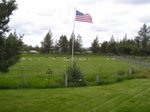


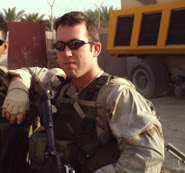










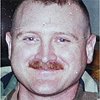


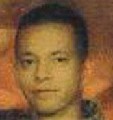









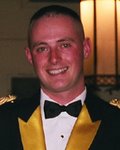






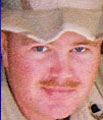
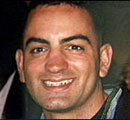




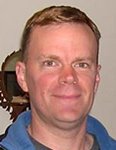
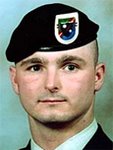




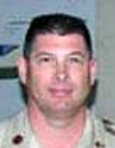
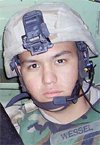
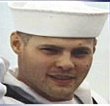
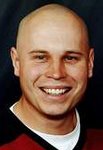
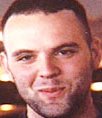



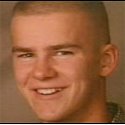
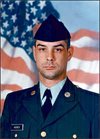


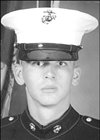
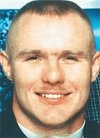
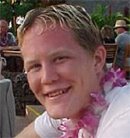

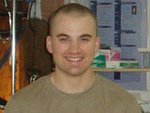

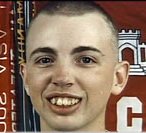


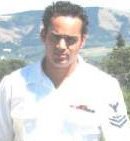

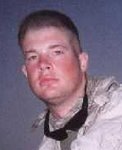
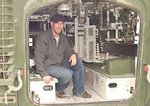
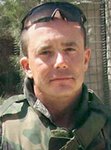

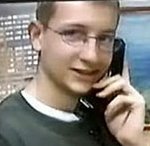

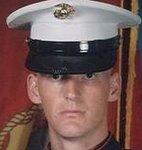
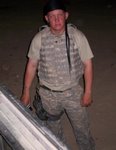
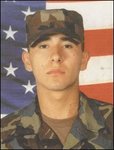
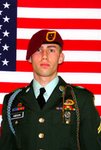

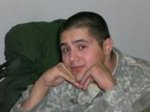
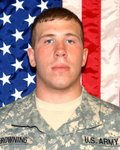





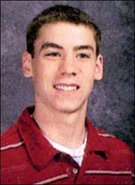
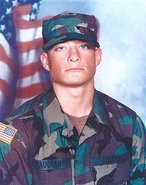
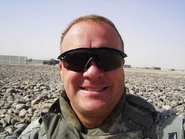
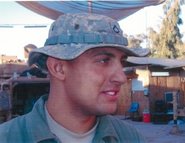
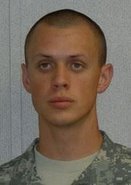
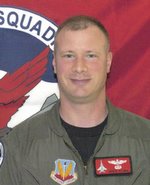
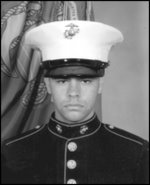
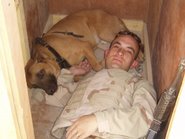
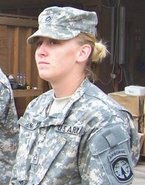
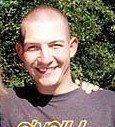
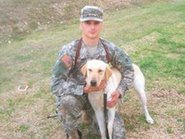

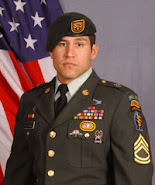

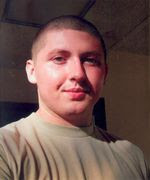



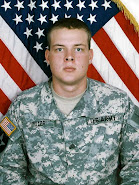
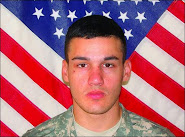



1 comment:
How good can it get, your friend "gets it".
I have a post. President Bush with the Air Force guys, I love that man.
Post a Comment